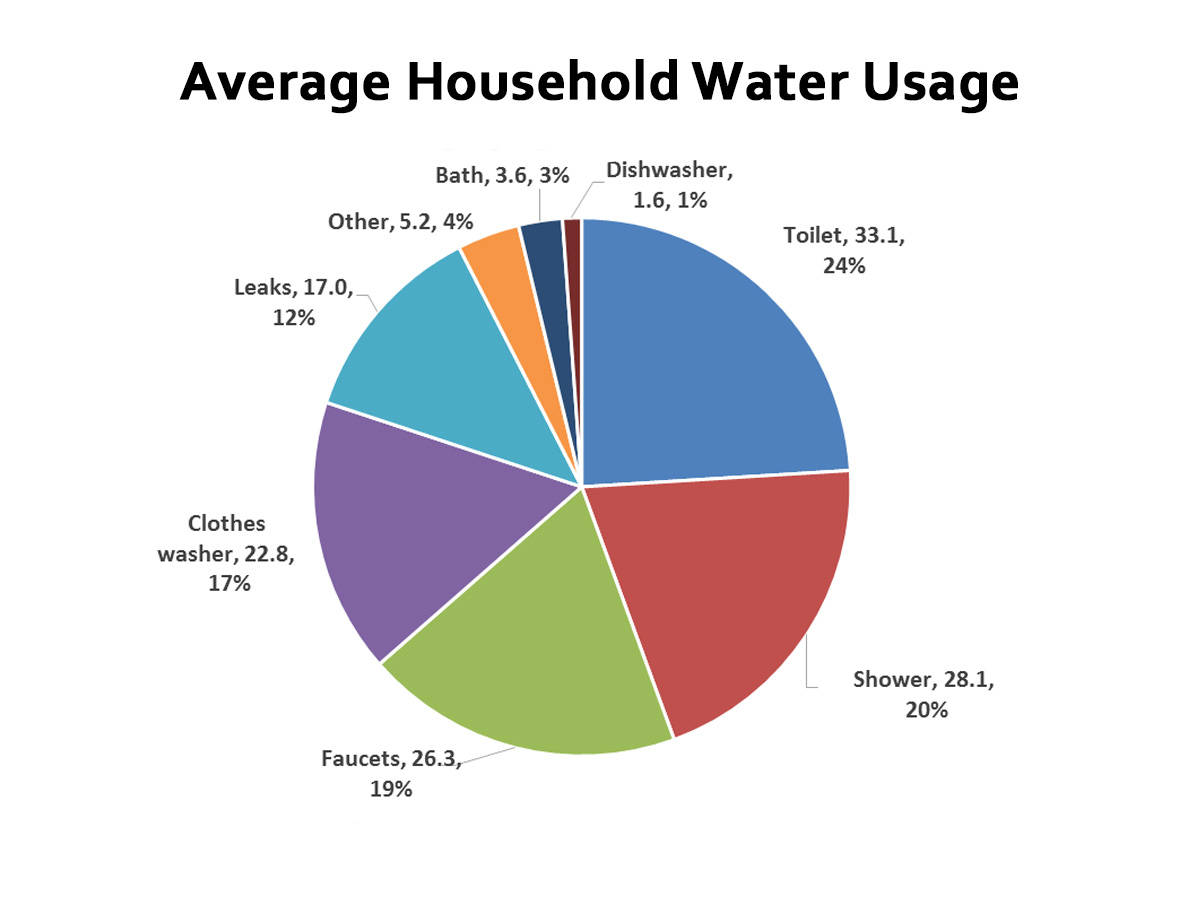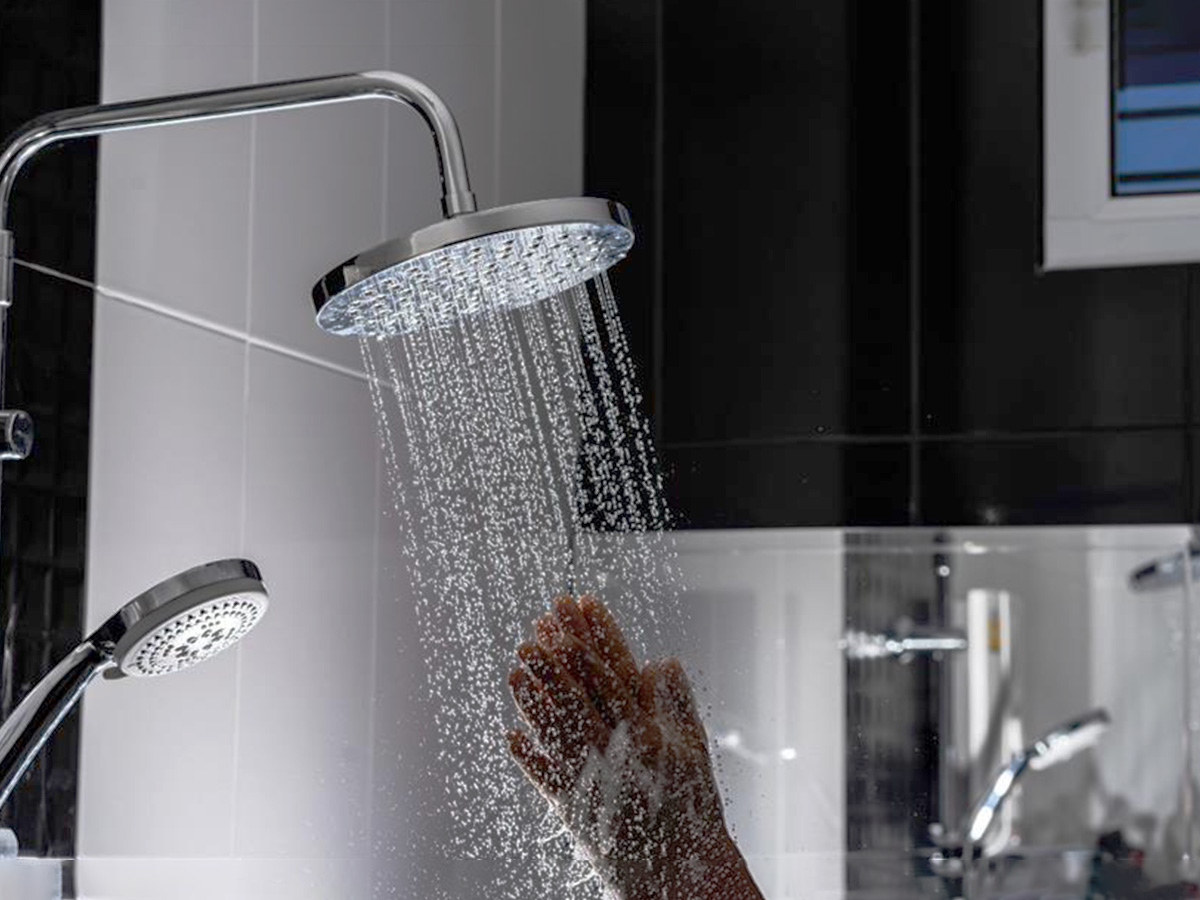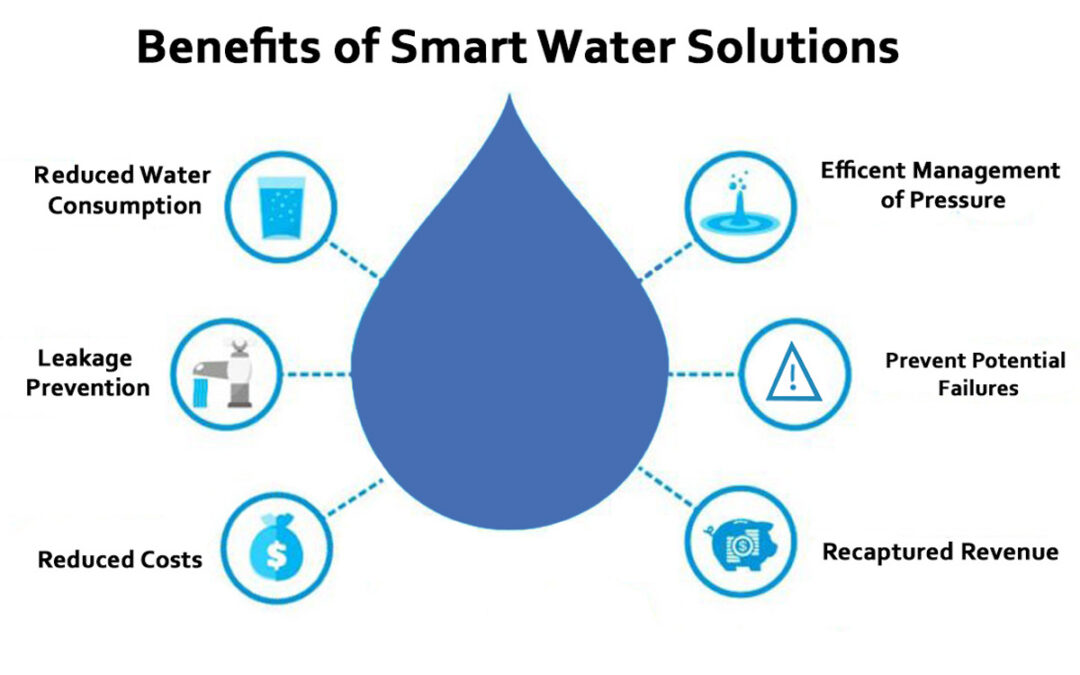This past year, the price of municipal water in Newport increased by 17.5%. Newport is not alone in seeing the price of water increase even faster than the rate of general inflation. This trend is happening both around the United States and globally. As 2025 unfolds, the importance of water conservation in both residential and commercial buildings has never been more pronounced. With water prices continuing to surge at rates outpacing broader inflation, the financial implications of water usage are becoming increasingly significant. Coupling these financial issues with growing environmental concerns, the need for efficient water management is no longer a matter of choice but is quickly becoming a pressing political issue as well.

The average American Household uses roughly 300 gallons of water per day. This pie chart displays how water is being used. Chart credit: Be Water Friendly
The escalating cost of water is placing a substantial burden on both homeowners and businesses. As water resources become scarcer and treatment and distribution costs rise, these expenses are passed on to consumers. For households, this translates to higher monthly bills, impacting budgets already strained by inflationary pressures in other areas. In the commercial sector, water-intensive industries such as manufacturing, hospitality, and agriculture are particularly vulnerable to these rising costs, potentially affecting profitability, competitiveness, and viability.

As a result of depleting water sources, citizens in the Middle East and Africa are left to collect lake and rain water in jugs. Image credit: AP
Beyond the financial considerations, water conservation is crucial for safeguarding our environment. Overuse of water resources has led to depleted aquifers, reduced river flows, and diminished wetlands, disrupting ecosystems and threatening biodiversity. In many regions, water scarcity is already a reality, magnified by climate change and prolonged droughts. By reducing water consumption, we can alleviate pressure on these stressed resources and contribute to a more sustainable future.
Fortunately, a wide range of strategies can be implemented in both residential and commercial settings to promote water conservation. In homes, simple measures such as installing low-flow showerheads and toilets, fixing leaks promptly, and adopting water-wise landscaping practices can make a significant difference. Similarly, businesses can invest in more advanced technologies like rainwater harvesting systems, greywater recycling, and smart irrigation systems to optimize water usage and minimize waste.

Residential smart technology includes these dual flush toilets which save water, reduce clogs, and better the environment. Image credit: TLC Plumbing
Technological advancements are playing an ever-more important role in enhancing water efficiency. Smart home devices can monitor water consumption in real-time, alerting users to potential leaks or excessive usage. In commercial buildings, sophisticated sensors and analytics can identify areas of high water use, allowing for targeted interventions and improvements. These innovations not only help reduce water consumption but also empower users with the information needed to make informed decisions about their water usage.

A “low-flow” shower head can reduce water consumption. Image from Adobe Stock Images
Water conservation is not just the responsibility of individuals or businesses; it requires a collective effort from all stakeholders. Governments can play a vital role by implementing policies encouraging water efficiency, such as incentivizing the adoption of water-saving technologies and promoting public awareness campaigns. Building codes are being updated to mandate the installation of water-efficient fixtures in new constructions. By working together, we can create a culture of water conservation that ensures the sustainable management of this precious resource for generations to come.

Smart water technology benefits all aspects of life from finance to the environment.
The increasing financial and environmental importance of water conservation in residential and commercial buildings cannot be overstated. As water prices continue to rise and water scarcity becomes a growing concern, adopting more efficient water management practices is not just a prudent financial decision but also a crucial step toward achieving environmental sustainability. A4 Architecture embraces these innovative technologies by implementing conservation strategies, and fostering a sense of shared responsibility, let us help in securing a future where water resources are available for all.
Ross Cann, RA, AIA, LEED AP, is an author, historian, teacher, and practicing architect living and working in Newport, RI. He studied Molecular Biophysics at Yale College, holds an M.Phil. in Architectural History from Cambridge University in England, and an M.Arch. in Architectural Design from Columbia University in New York. He became a licensed architect in 1993 with an average score of 98% on his eight licensing exams.
